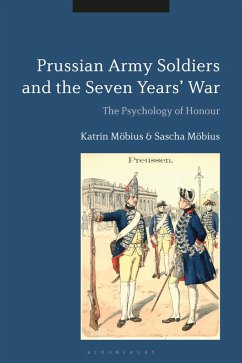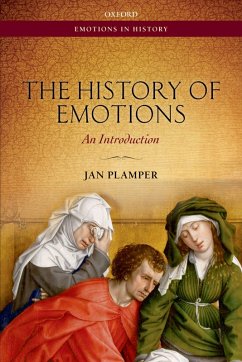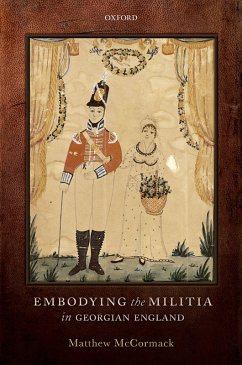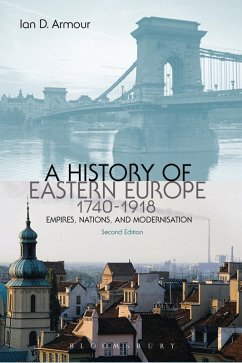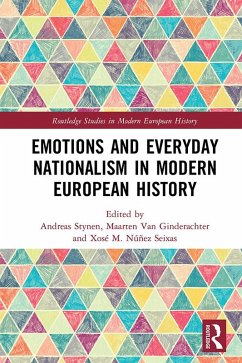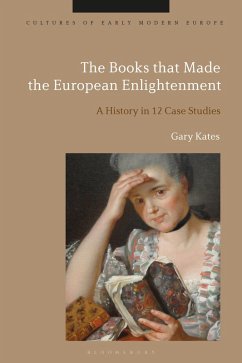
Prussian Army Soldiers and the Seven Years' War (eBook, PDF)
The Psychology of Honour
Versandkostenfrei!
Sofort per Download lieferbar
26,95 €
inkl. MwSt.
Weitere Ausgaben:

PAYBACK Punkte
13 °P sammeln!
The army of Frederick the Great of Prussia is generally known as an efficient fighting machine based on brutal and strict drill procedures that led to broken but fearless soldiers as well as glorious battle victories. In analysing the mentalities of the men who established Prussia's great power status, Prussian Army Soldiers and the Seven Years' War fundamentally challenges this interpretation.Drawing on a vast array of primary sources (including the writing of regimental chaplain Küster, who could probably be called the first modern military psychologist) and presenting the first English tra...
The army of Frederick the Great of Prussia is generally known as an efficient fighting machine based on brutal and strict drill procedures that led to broken but fearless soldiers as well as glorious battle victories. In analysing the mentalities of the men who established Prussia's great power status, Prussian Army Soldiers and the Seven Years' War fundamentally challenges this interpretation.
Drawing on a vast array of primary sources (including the writing of regimental chaplain Küster, who could probably be called the first modern military psychologist) and presenting the first English translation of 12 letters of common Prussian soldiers from the Seven Years' War, this book shows that the soldiers were feeling individuals. They were loving husbands, vulnerable little brothers, deeply religious preachers, and sometimes even bold adventurers. All these individuals, however, were united by one idea which made them fight efficiently: honour.
In Prussian Army Soldiers and the Seven Years' War, the different elements of the Prussian soldiers' concept of such honour are expertly analysed. The result is a nuanced, sophisticated, and much-needed psychological history of Frederick the Great's army.
Drawing on a vast array of primary sources (including the writing of regimental chaplain Küster, who could probably be called the first modern military psychologist) and presenting the first English translation of 12 letters of common Prussian soldiers from the Seven Years' War, this book shows that the soldiers were feeling individuals. They were loving husbands, vulnerable little brothers, deeply religious preachers, and sometimes even bold adventurers. All these individuals, however, were united by one idea which made them fight efficiently: honour.
In Prussian Army Soldiers and the Seven Years' War, the different elements of the Prussian soldiers' concept of such honour are expertly analysed. The result is a nuanced, sophisticated, and much-needed psychological history of Frederick the Great's army.




